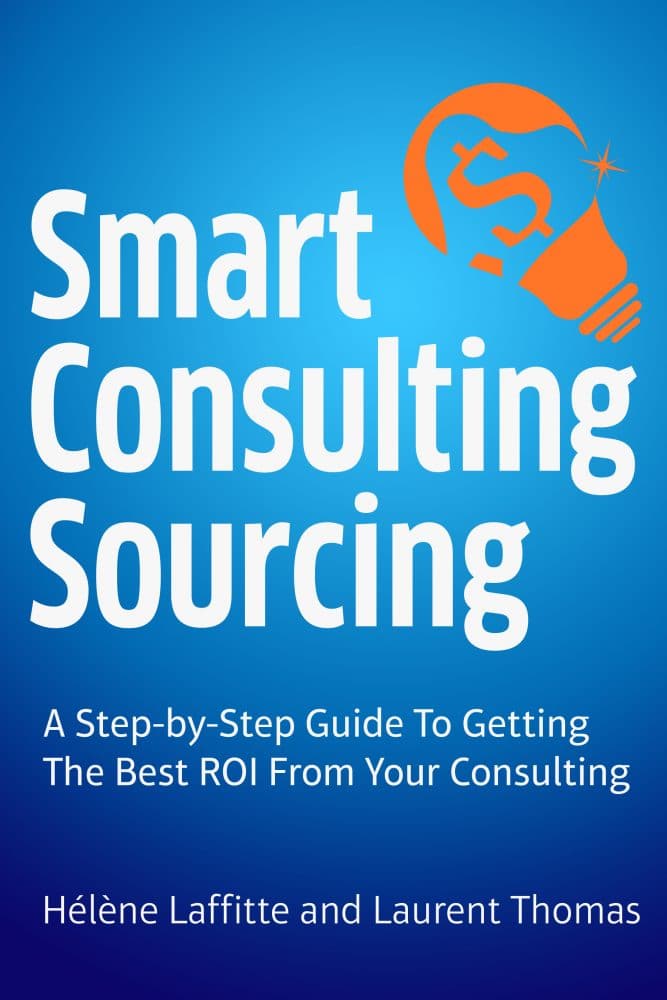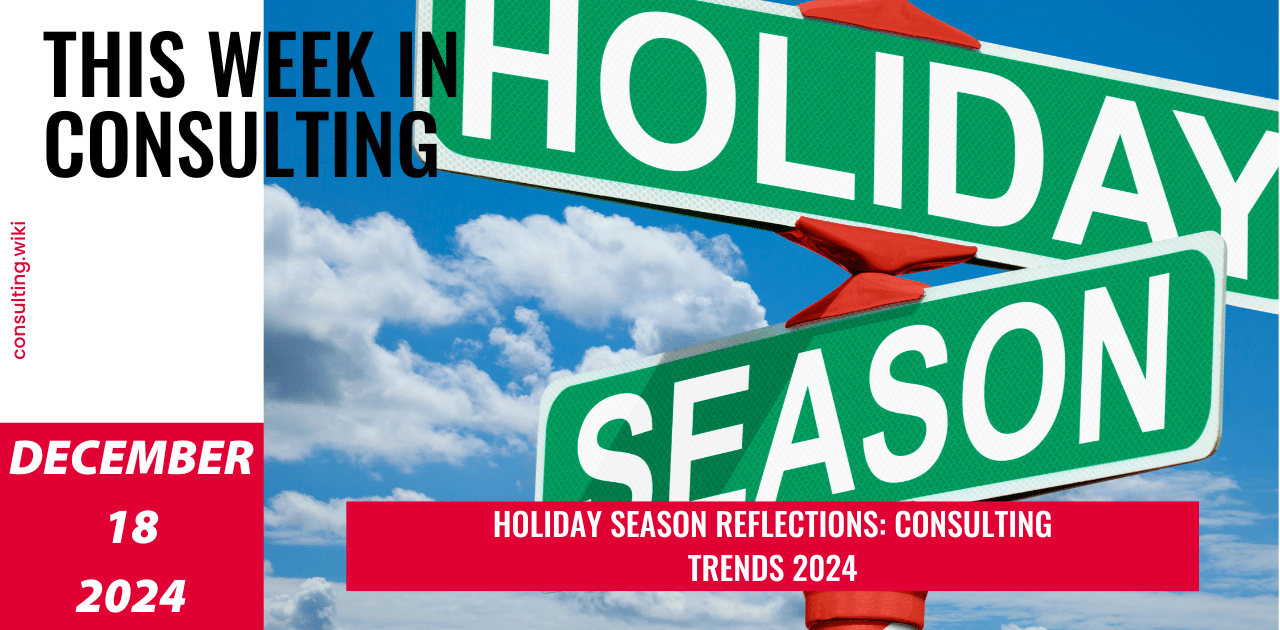
Leverage the Covid-19 crisis to decrease your consulting costs.
According to Nariman Behravesh, Chief Economist at the consulting firm IHS Markit, “COVID-19 has caused an economic shock three times worse than the 2008 financial crisis.” Most countries will face a recession of epic proportions, and millions of companies are fighting for their survival.
Leverage the Covid-19 crisis to decrease your consulting costs – Most consulting firms are struggling.
The consulting industry is no exception to the rule. The industry has always followed the cycles of the economy. Client organizations have delayed projects, reduced scopes, or froze consulting spend altogether, leading to a 10% contraction in value in 2020.
With the pressure on OPEX, client organizations are now screening their expenses to find savings opportunities. And Consulting, which seats in the indirect category and can represent up to 3% of the income, seems like an obvious target. As an executive, you might be tempted to attack the cost base with traditional cost-cutting measures and price negotiations.
But before we go there, let’s have a look at the bigger picture.
READ ALSO
When companies face difficulties such as Covid 19 and start to be cash-constrained, they often look to reduce their consulting spend, and Consulting looks like a non-essential line.
How do consultants build their prices?
Consultants are selling their time, or more precisely, the access to expert knowledge and execution workforce during a certain period of time. The potential of production of a Consulting firm is the amount of time available for billing. Every day not billed is lost just like an empty airplane seat. So, the fee structure is usually geared to optimize the utilization rates.
Since Consultants are primarily selling their time, the time spent on a project is the main driver of cost. Usually, the price is calculated as the product of the daily rate per the number of days spent on the project.
The daily rate is most of the time defined with a Cost Plus analysis. What determines the level of daily rate is often the depth of expertise and experience.
An expert guru in a given field can charge up to $10k/day. Indeed, the time spent by a consultant to grow his expertise, develop new methodologies, and share his knowledge through books and articles is not billable. But it influences your buying decision and the success of your project. In a way, you could consider those $10k as 2 for the time and 8 for the expertise’s value.
The seniority can also make a huge difference. You can expect a multiplication factor of 5 or more between an experienced partner and a newly-graduated analyst. Even though you might not be able to fully reconcile the fees with the salary as significant markups and overheads are applied. If you look at most client companies, there is also a significant multiplier between junior roles and vice president ones. The gap often comes from the analyst starting salary being almost twice what junior profiles can get in the industry combined with the markups and overheads mentioned earlier.
As a result, a project’s team composition is instrumental in defining a consulting project’s price. For instance, a partner at 50% plus 2 juniors full time will cost significantly more than a partner part-time teaming up with some of your team members, especially as the partner will, in most cases, assign a manager to drive the work of the 2 juniors. Suddenly you end up paying much more for the workforce than the expertise you wanted in the first place.
How do Consultants make money?
Now that we know how Consultants invoice their clients let’s take a step back and get the big picture. Of course, understanding your suppliers’ cost structure is just one small part of the equation, but it will help you get the gist of the constraints.
Whatever the size of the Consulting Firm, the main expense item is people. If you think about it, it probably makes sense since consultants are the service. Consulting Firms spend a lot of money on attracting and retaining talents. Within most consulting firms, non-partners consultants are considered as fixed costs.
Depending on the company’s size, overheads can represent a very significant share of the overall costs. Top consultancies have made a fancy address and fancy offices a large part of their brand. They also present an almost balanced ratio between consultants and nonconsultants in their staff. Obviously, boutique consultancies and independent consultants will be much leaner on this cost category.
Once you have the cost of employees and overheads covered, the next cost center on the center of the list will be marketing and sales. Building a brand, growing recognition, getting thought leadership out there is key to generate leads and solidify a company’s position. Again, this category can be quite slim for small firms.
Indeed, the consulting cost structure is that simple, fixed costs are limited to some overhead and SG&A, the main cost by far being the wages of consultants.
Take the full salary, including potential bonus, add some margin expectation to cover for various SG&A, add some margin expectation and divide by a target utilization in a given number of days: you just got yourself a daily rate.
The recipe for profitability is simple: utilize your consultants enough to cover those three categories. Any turnover beyond this threshold will fill the bonus pool to pay the partners and shareholders.
Sales and pricing will drive the top line, but utilization is king. The consulting firm’s right-sizing will drive profitability. Oversize and partners will share a meager bonus as most revenues will be used to pay the teams. Undersize, and you might miss significant opportunities. It explains why more and more companies are using a flexible workforce and the recent rise of consulting marketplaces.
How do Consulting firms face the crisis?
Many consulting firms took a bit hit since the beginning of the crisis. Between the travel restrictions and the consulting freezes, they may not have worked on new projects since March.
They have used their cash at hand to cover costs for a while and then probably have stopped all subcontracting and furloughed some or all of their employees. Since most of the costs come from wages, this measure should have allowed them to balance their cash flows.
But then the next step is probably to cut rent and marketing expenses. In an industry that is increasingly relying on thought leadership and content creation, consulting business owners have to make tough decisions to reduce their costs without jeopardizing future sales and brand awareness.
Another important factor for them to manage is talent retention. Consulting Firms cannot keep their consultants on furlough forever. And since consulting is about selling your time and expertise, they need to maintain this expertise by staffing consultants and projects and keeping employees engaged by assigning them on interesting projects.
As a result, consultants will be hungry for projects. After all, 80% of something is better than 100% of nothing.
Large consulting firms have little room to cut their margins because of their shareholders and their pyramidal structure. They will focus on reduced expectations and accept smaller projects. The odd staffing practice requiring consultants to work full time on projects will, for sure, limit their options.
Small to mid-sized consulting firms are more flexible. They will accept smaller projects than usual and lower prices. They might also accept projects outside their core expertise, putting their brand and reputation in danger.
As you can see, there will be opportunities for client organizations to reduce their consulting costs through negotiations. And in the short-run, you can probably expect a decrease of 10-15%.
But what would be the impact of the long run? And how to take advantage of the situation in a socially responsible way?
Next week: Leverage the Covid-19 crisis to decrease your consulting costs – Act as a “risk-sharing partner.”
Consulting sourcing tips

How to negotiate framework agreements for consulting to your advantage?
How to negotiate framework agreements for consulting to your advantage?

Make-or-buy for consulting services 101
Make-or-buy for consulting services 101

How to Hone to Perfection Your Consultant Selection with Our Top 5 List of Attributes
You are moving forward with the project and close to making a final selection of your Consulting provider. Based on the proposal assessment described in one of our previous articles, you should now have a good sense of what the Consultant can do for you, on paper.
Previous Weeks’ issues

Holiday Season Reflections: Top Themes in Consulting 2024 | This Week in Consulting
In this edition of this week in consulting, we embrace the holiday season by reflecting on 2024’s key trends like generative AI, sustainability, and social impact.

The Changing Tide of International Trade | This Week in Consulting
In this edition of This Week in Consulting, we explore how regions contribute to global trade, the challenges they face, and the opportunities to adapt amid shifting geopolitics and policies.

Digital Transformation Decoded: Challenges, Insights, and Opportunities | This Week in Consulting
In this edition of This Week in Consulting, we delve deep into the challenges and opportunities of digital transformation across industries, offering insights to strategize, adapt, and lead.
Choose the best next step for you
Buy the Book
Talk to us
Hélène Laffitte is the CEO of Consulting Quest, a Global Performance-Driven Consulting Platform and author of “Smart Consulting Sourcing”, a step by step guide to getting the best ROI from your consulting. With a blend of experience in Procurement and Consulting, Hélène is passionate about helping Companies create more value through Consulting.







